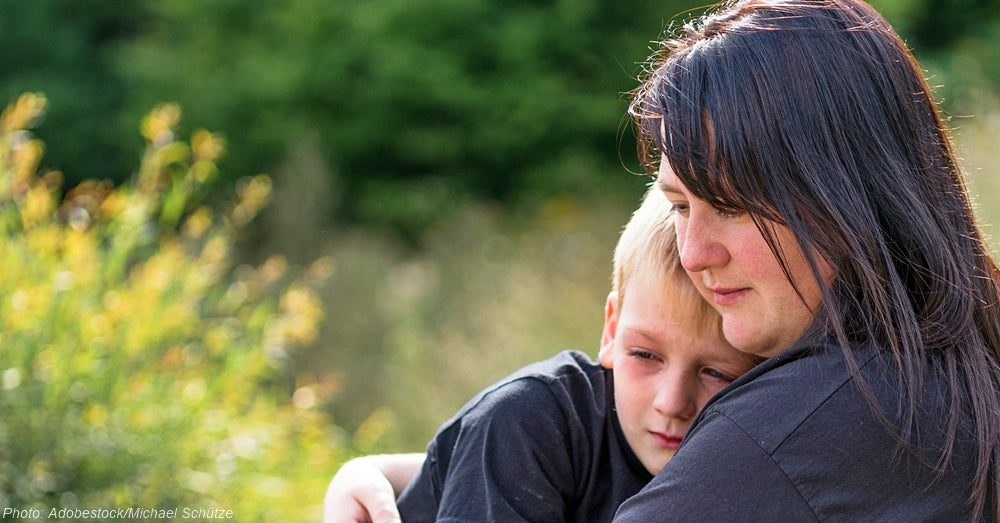8 Steps to Setting Consequences for Kids with Autism
Shopify API
Parenting is always a balancing act, but raising a child with autism has its own unique set of challenges. One common problem is learning to set boundaries and create appropriate consequences for your children. Kids with autism respond to consequences and punishment differently than neurotypical children, so your average parenting guide isn't much help. Here are steps you can take to develop a plan that teaches appropriate behavior while still creating a positive, encouraging environment for your child.
8. Consider What Your Child Is Telling You
Children with autism often struggle with identifying and communicating their feelings, so acting out may be their only way to tell you that something is bothering them. While it is still important to teach your child to handle those feelings in appropriate ways, you may be able to help identify and fix the underlying problem.
 Photo: Pixabay
Photo: Pixabay
7. Look For Patterns
Some children may act out somewhat randomly, but often there is a consistent trigger or timing for the behavior. Discovering these triggers can help you develop a plan to minimize disruption while you work with your child on more appropriate responses. It can also help you figure out if your discipline plan is working. It can help to keep a log or diary of every incident, since it's easy to forget small details or minor outbursts.
 Photo: Pixabay
Photo: Pixabay
6. Tailor the Consequences To the Child
An important thing to consider when raising a child with autism is that many punishments that work for neurotypical kids can actually be either neutral or a reward for someone on the spectrum. For example, sending your child to his room instead of spending time with the family or grounding him so he can't see his friends may not be a big deal to a kid who prefers to spend most of his time alone.
 Photo: Pixabay
Photo: Pixabay
5. Make Consequences Relevant and Immediate
Children with autism sometimes have more trouble understanding cause and effect than neurotypical children, and they also often struggle with short attention spans. Relevant, immediate consequences are important for any child, but those tendencies make it even more important for children on the spectrum. It's also important to keep things reasonably short so that the infraction is still fresh in your child's mind when the punishment is over.
 Photo: Pixabay
Photo: Pixabay
4. Reward Good Behavior
It's easy to focus on negative consequences, but tangible rewards for positive behavior may be even more important. Rewards tend to motivate people to work harder and change their behavior more quickly, and they let your child know that he is on the right track. In addition to everyday things, such as verbal praise, it may be a good idea to create a structured system of rewards that your child can earn with good behavior.
 Photo: Pixabay
Photo: Pixabay
3. Use Visual Aids
Children with autism may struggle to understand why they are being disciplined, and visual aids can help. It can also help you maintain structure and consistency, which can be difficult for any parent at times. Create a chart of common behavioral issues your child has, and lay out the consequences clearly. For older children, it's also a good idea to make a note describing why the consequence is appropriate for that behavior. This can help things seem less arbitrary and help your child understand where you are coming from.
 Photo: Pixabay
Photo: Pixabay
2. Pick Your Battles
No one can address every single issue perfectly, so don't be afraid to make reasonable concessions. This is particularly important if your child has a few major behavioral issues along with some smaller ones. It may be better to focus on the big picture and address the smaller things later. You want your child to feel like you are on the same side, and that's hard to do if you're constantly doling out punishments--even if they are appropriate ones.
 Photo: Pixabay
Photo: Pixabay
1. But Don't Lower Your Standards
Raising a child with autism can be stressful and worrying, and it's easy to fall into the trap of trying to protect your child from the consequences of his actions or making excuses for bad behavior because he is on the spectrum. Try not to let that happen. Disciplining your children may be difficult for all of you in the short term, but it's the best way to help them grow up into healthy, well-adjusted adults.
 Photo: Pixabay
Photo: Pixabay
Remember, every parent makes mistakes when it comes to discipline, but these eight steps can help you create an effective plan to minimize those mishaps and tailor your approach to your child's unique needs.

